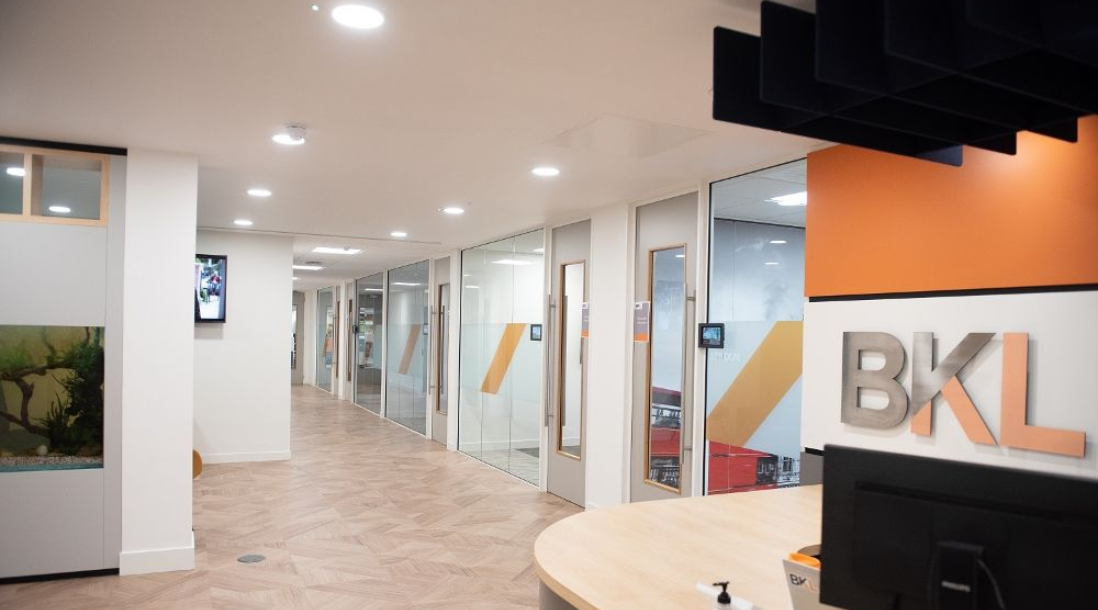Knowing what you’re up against is crucial for success in any endeavour, whether you’re facing a complex challenge, embarking on a new venture or striving to achieve a new goal. The capacity crunch in accountancy is no exception…
So, without further ado, here are four talent-related challenges every accounting firm is or will be facing – with facts and figures plus a checklist on where software, AI and other technologies can help alleviate some of the burden.
Understanding four specific challenges:
1. Finding and securing the right people
3. Training people in a competitive world
4. Maximising people’s contribution to growth
Did you know? The capacity challenge is not uniform across the UK, but more pronounced in certain areas. According to Accountancy Age, regions like Manchester and Nottingham are experiencing more acute talent shortages, with a low number of applicants for accounting roles.
Challenge 1: Finding and securing the right people
At the heart of the capacity crunch lies the quest to find and secure the right people. This is becoming increasingly challenging for accounting firms across the UK – for a number of reasons that come together to create ‘the perfect storm’.
A drop in new applicants
Trade publications such as Accountancy Age and AccountingWEB report a steady decline in the number of students and qualified members joining industry bodies like ACCA, ICAEW and ICB.
This is making it hard for accounting firms to attract suitable candidates. In fact, a survey by ACCA found that 90% consider it challenging or extremely challenging to recruit skilled talent.
- 60,000 accountants lacking is the estimated talent shortage by 2050 according to a study by the Association of Accounting Technicians (AAT).
Retiring seasoned professionals
The retirement of more experienced accountants is another significant factor contributing to the talent shortage in the UK’s accounting sector.
What’s more, an increasing number of people in the UK have been taking up early retirement in recent years – a trend that’s only adding to the talent void in the industry.
- 1 in 10 UK baby boomers retired earlier than planned between 2020 and 2022, according to research by Dunstan Thomas.
Increasing demand
While there’s a decrease in new talent coming in and an increase in seasoned accountants leaving the workforce, the demand for qualified professionals is on the rise. In fact, despite the current economic challenges, most employers in accounting and finance are looking to grow their teams.
- 62% of recruiters responsible for hiring accountancy and finance talent plan to recruit staff in the coming years, according to the Hays UK Salary & Recruiting Trends guide.
High employee mobility
Another contributing factor to the shortage of talent is the fact that more and more UK accountants are open to changing roles.
This trend is driven by factors such as career advancement opportunities, inflation-driven wage demands and a search for better work-life balance.
- 48% of UK accountants changed jobs or roles between 2021 and 2023, according to a survey by Sellick Partnership.
Challenge 2: Keeping people engaged
In a tight labour market, employees often bear the burden of having to boost their individual efficiency and productivity – and this is becoming a particularly pressing matter in the world of accountancy. In fact, stressful job assignments and long working hours are considered the biggest detractors from pursuing a career in accountancy, according to ACCA’s 2023 Global Talent Trends survey.
This pressure can potentially sap morale, cause burnout and further reduce employee engagement across the board, especially in peak periods or in the face of repetitive tasks. Unsurprisingly, many talented accountants are looking for employers that offer autonomy and flexibility.
According to ACCA research:
- 87% want to work remotely at least one day a week in the future.
- 88% want a better work-life balance moving forward.
- 66% rate work-life balance as a major reason to choose an employer.
Meanwhile, 35% of accountants who participated in the AccountingWEB Intelligence Capacity Challenge report claim to have more clients than in previous years, but the same level of staff. And, 9 in 10 Brits don’t feel engaged at work.

Challenge 3: Training people in a competitive world
As accountancy evolves, people’s skillsets must keep up. The age of the number cruncher is coming to a close and making way for accountancy talents who understand the need to develop and hone a variety of skills and know-how, including:
The UK has one of the lowest employee engagement rates in Europe. At 10%, it ranks 33rd out of 38 countries in Gallup’s 2023 State of the Global Workplace.
| Technological skills Accounting now relies on various tools, which are regularly updated with automation and AI. Many accountants are untrained in these technologies, leading to inefficiency in their work. | Regulatory knowledge The rules and regulations in accounting will always evolve and change. Accountants need to keep up with these changes through continuous learning in order to stay compliant. |
| Data-driven decision-making Businesses increasingly use data to make decisions, and accountants need to follow suit. How? By focusing more and more on analytical and data interpretation skills to provide the services clients have come to expect. | Soft skills Communication and interpersonal skills – including an ability to learn, flexibility and adaptability, and coordination with others – have become critical for talents looking to pursue a long-term career in accountancy. |
Amidst the capacity crunch, the most attractive employers are those that manage to provide these and other learning opportunities. But don’t take our word for it – the figures provide the evidence. According to a survey by ACCA, no less than 70% of accountants consider learning and growth opportunities a major reason to choose a new employer or stay with their current firm.
- 70% of accountants consider learning and growth opportunities a must when choosing a specific employer.
- 86% of accountants want their employers to provide more training on the use of accounting technologies.
Challenge 4: Maximising people’s contribution to growth
Given this capacity crunch, it’s crucial to strive for the greatest possible impact with your existing teams – without burning them out. One way of achieving this is by focusing on greater consistency, standardisation and efficiency, to avoid divergence in practices and processes among different teams.
After all, the consequences of divergence can be far-reaching, especially when embarking on a journey of expansion and/or acquisitions:
| Inefficiencies Tasks may be duplicated, processes may be redundant, or information may not flow smoothly between teams. This inefficiency can slow down operations, decrease productivity and increase the risk of errors and inaccuracies. | Communication challenges When teams are not communicating effectively across the firm, or with clients, a multitude of risks arise. Misunderstandings, delays in decision-making and mistakes are likely while customer satisfaction plummets. |
| Culture clash Different teams or offices may have different organisational cultures that are reflected in core processes and client facing work. This can create tension, resistance to change and low morale among staff members, while confusing clients. | Inconsistent client experiences Clients may receive different levels of service or encounter varying approaches to their account, depending on which individual or team they interact with. This inconsistency can erode trust and damage your firm’s reputation. |
In addition to harmonising practices and processes, another way of maximising your people’s contribution to overall growth is by enabling them to focus more time and energy on high-impact activities, such as advisory services.
How? You needn’t look far for the answer. Most accountants in the UK understand that technology presents major benefits when it comes to maximising their impact.
- In a 2023 survey by ACCA, for example, 93% of respondents indicated that technology enables them to add more value to their organisation or their clients’ organisations.
About Silverfin:
Silverfin is a cloud platform with live client data, connected workpapers and AI that’s built by accountants for accountants. Silverfin dramatically improves the efficiency, accuracy and profitability of traditional post accounting work. With centralised data, standardised and automated workflows, this work takes hours rather than days.
Built by accountants for accountants, Silverfin supports over 340,000 client files a year for customers including 30 of the top 100 accounting firms in the UK.
Creating consistency and capacity, Silverfin helps firms thrive with improved quality, insights and the benefits of AI trained on accounting data. Our cloud Data Hub enables access to real-time data and eliminates errors so that preparing and submitting end-of-year accounts and corporation tax returns often takes 50% less time.















